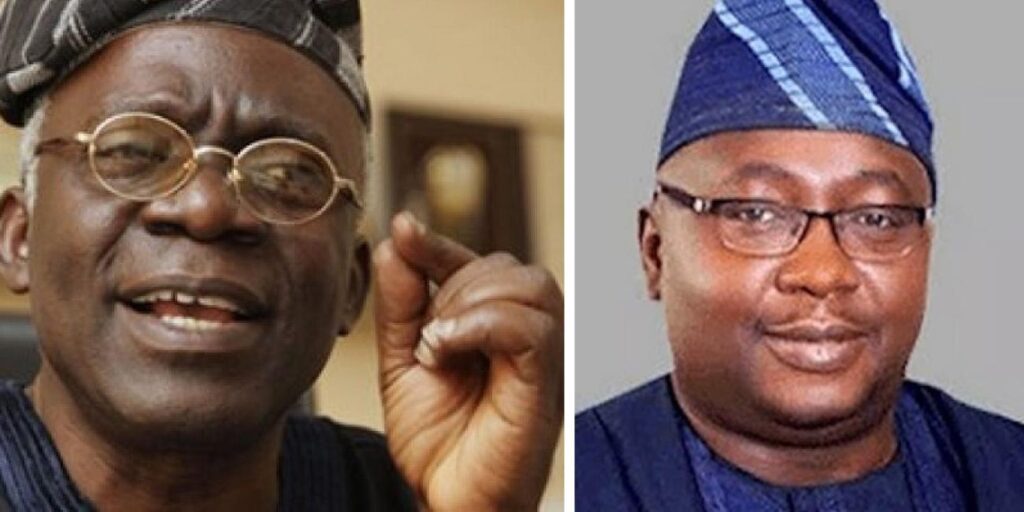
The widely known lawyer also expressed concern over what he described as impunity on the part of the FG and NERC, stressing their actions were not backed by laws.
Introduction:
Renowned human rights lawyer, Femi Falana, SAN, recently criticized the Minister of Power, Adebayo Adelabu, over the government’s inability to ensure a consistent supply of electricity despite the escalated tariffs imposed on Nigerians under Band A. Falana’s remarks, made during a guest appearance on a Channels TV programme, shed light on what he perceives as the illegality surrounding the tariff hikes and the failure of the Nigerian government, particularly Adelabu, to address this critical issue.
Background:
The National Electricity Regulatory Commission (NERC) had previously raised the tariff paid by Band A consumers from N68/KWh to N225/kWh, asserting that Band A customers should expect 20-24 hours of electricity daily. However, reports from Nigerians indicate a lack of steady power supply, contrary to promises made by Adelabu, prompting public outcry and dissatisfaction with the current state of affairs.
Falana’s Critique:
In his critique, Falana highlighted the procedural irregularities in implementing the tariff hike, citing Section 116 of the Electricity Act 2023, which mandates a public hearing before any tariff adjustment can be authorized. Falana argued that the absence of such a hearing renders the increase unlawful. Moreover, he questioned the rationale behind the tariff hike given the persistent power outages experienced by consumers in Band A.
Implications and Allegations:
Falana raised concerns over what he described as impunity on the part of the federal government and NERC, emphasizing that their actions lacked legal backing. He also alleged that the Nigerian government’s decision-making process in matters of electricity tariffs is influenced by directives from international financial institutions like the International Monetary Fund (IMF) and the World Bank. According to Falana, these institutions advocate for the removal of subsidies and the commercialization of social services, making them unaffordable for the majority of Nigerians.
Conclusion:
Falana’s critique underscores broader concerns regarding transparency, legality, and accountability in Nigeria’s energy sector. The discrepancy between promised electricity supply and actual delivery, coupled with the perceived influence of external actors on domestic policies, raises fundamental questions about governance and public welfare in the country. As the debate surrounding electricity tariffs continues, it remains imperative for stakeholders to address these issues and ensure that policies align with the best interests of Nigerian citizens.